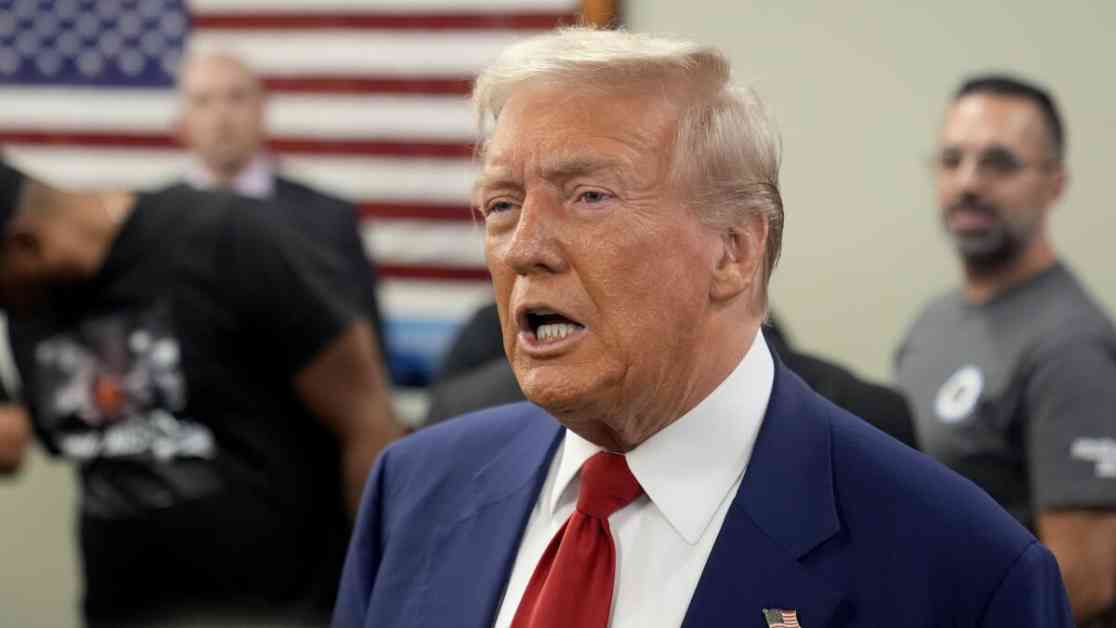The Influence of Trump’s Rhetoric on Political Violence
In the realm of political discourse, the impact of words cannot be underestimated. Former President Donald Trump’s rhetoric has often been characterized as divisive, inflammatory, and at times, incendiary. Robert A. Pape, a political scientist specializing in political violence, has highlighted the concerning trend of radical elements on both sides of the political spectrum viewing violence as a justifiable means to achieve their goals. Pape’s research indicates that a significant portion of adults, approximately 10% and 7% respectively, believe that violence may be necessary to prevent Trump from gaining power or to ensure his return to the White House. This alarming revelation underscores the potentially dangerous consequences of inflammatory rhetoric in politics.
The events that have unfolded in recent months serve as stark reminders of the influence of political rhetoric on violent actions. From the two apparent assassination attempts on Trump to the attack on former House Speaker Nancy Pelosi’s husband, Paul, the manifestations of this heightened political tension have been deeply troubling. Pape emphasizes that it is not the quantity of incendiary statements that matters, but rather the impact they have on individuals who may be swayed towards violence. The rise in such incidents underscores the urgent need for all political actors to exercise restraint in their language and actions.
The Hypocrisy of Political Rhetoric
The current political landscape is fraught with accusations of hypocrisy and double standards when it comes to rhetoric. Democrats and other Trump critics have been quick to condemn Trump’s incendiary remarks while defending their own statements as necessary in the face of what they perceive as a threat to democracy. The escalating war of words between political factions has only served to deepen the divide and fuel tensions within the electorate.
Trump’s history of using provocative language to galvanize his supporters has been well-documented. From his promises to pardon violent mobs to his propagation of false claims about immigrants, Trump’s rhetoric has consistently pushed the boundaries of acceptable discourse. His recent attacks on Vice President Kamala Harris, including labeling her as “Comrade Kamala Harris” and accusing her of enabling the invasion of the country by criminals and terrorists, have further exacerbated the already volatile political climate.
The Call for Unity and Responsible Discourse
Amidst the escalating rhetoric and heightened tensions, calls for unity and responsible discourse have become more urgent than ever. President Joe Biden’s outreach to Trump following the recent assassination attempts underscores the need for political leaders to set aside their differences and prioritize the well-being of the nation. Harris’ condemnation of Trump’s lies and divisive rhetoric, coupled with her emphasis on the importance of peaceful resolution of conflicts, exemplifies a commitment to upholding democratic values in the face of adversity.
As the specter of political violence looms large over the upcoming elections, it is imperative for all stakeholders to prioritize dialogue, understanding, and respect in their interactions. The fear of violence and the erosion of democratic norms should serve as a wake-up call for all Americans to recommit themselves to the principles of democracy and the peaceful transfer of power. Only through unity and mutual respect can we hope to navigate the turbulent waters of contemporary politics and emerge stronger as a nation.



























